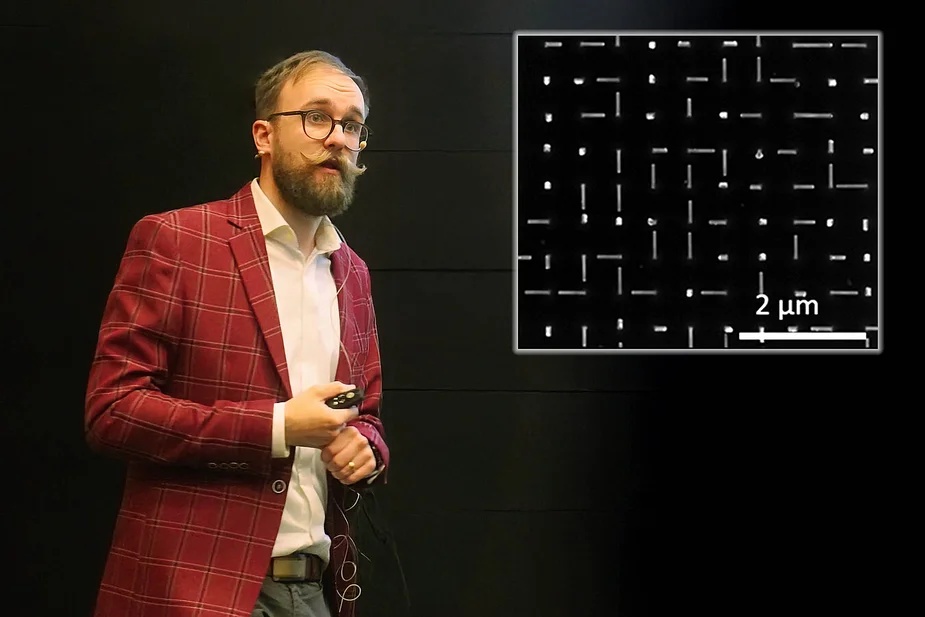Owen C. Ernst awarded the DGKK Young Scientist Prize 2025
IKZ graduate honoured by the German association for crystal growth DGKK
This year, the Deutsche Gesellschaft für Kristallzüchtung und Kristallwachstum e.V. (DGKK) awards IKZ graduate Dr. Owen C. Ernst with the Young Scientist Award, endowed with 2500 €, for his outstanding scientific achievements in the field of nucleation and growth of complex structures of thin metal films on crystalline surfaces.
The thermodynamics of material growth is characterized by classical nucleation theory. From the formation of nanoscopic droplets to the genesis of microcrystallites and the growth of bulk crystals, almost all material formation processes can be explained using classical nucleation theory. However, under certain conditions, alternative approaches describe the formation of material and morphology more realistically. These alternatives include the theory of dewetting and the theory of dissipative structures.
In his work at the IKZ, Dr. Owen C. Ernst investigated the influence of system parameters on structure formation and how the resulting metal structures can be used for the epitaxy of semiconductor structures. As a result of his work, the formation of material structures can not only be described but even predicted with the help of dewetting theory. By extending it with the principles of non-equilibrium thermodynamics, material structures can be described for the theory that could not be achieved before. However, the focus of the research was not only the extension of the theory, but also its usability - for example, for the synthesis of energy conversion materials.
Dr. Owen C. Ernst has been working at the IKZ since 2017. In 2018, he began his doctoral thesis on “Consideration and extension of dewetting theory for the sophisticated synthesis of energy conversion materials”, which he defended summa cum laude. From 2022 he took over the group leadership “Structure formation and local growth of semiconductor materials”. Since 2024, Owen C. Ernst has been working as a project manager at the Brandenburg University of Technology Cottbus-Senftenberg. There he is working on the chemistry and physics of isotopically pure semiconductor crystals for applications in quantum technology.
Contact:
Dr. rer. nat. Owen C. Ernst
Brandenburg University of Technology Cottbus-Senftenberg
Physical Chemistry
+49 (0)3573 85 851
owen.ernst(at)b-tu.de
Press release BTU / Source: IKZ, 20 March 2025
